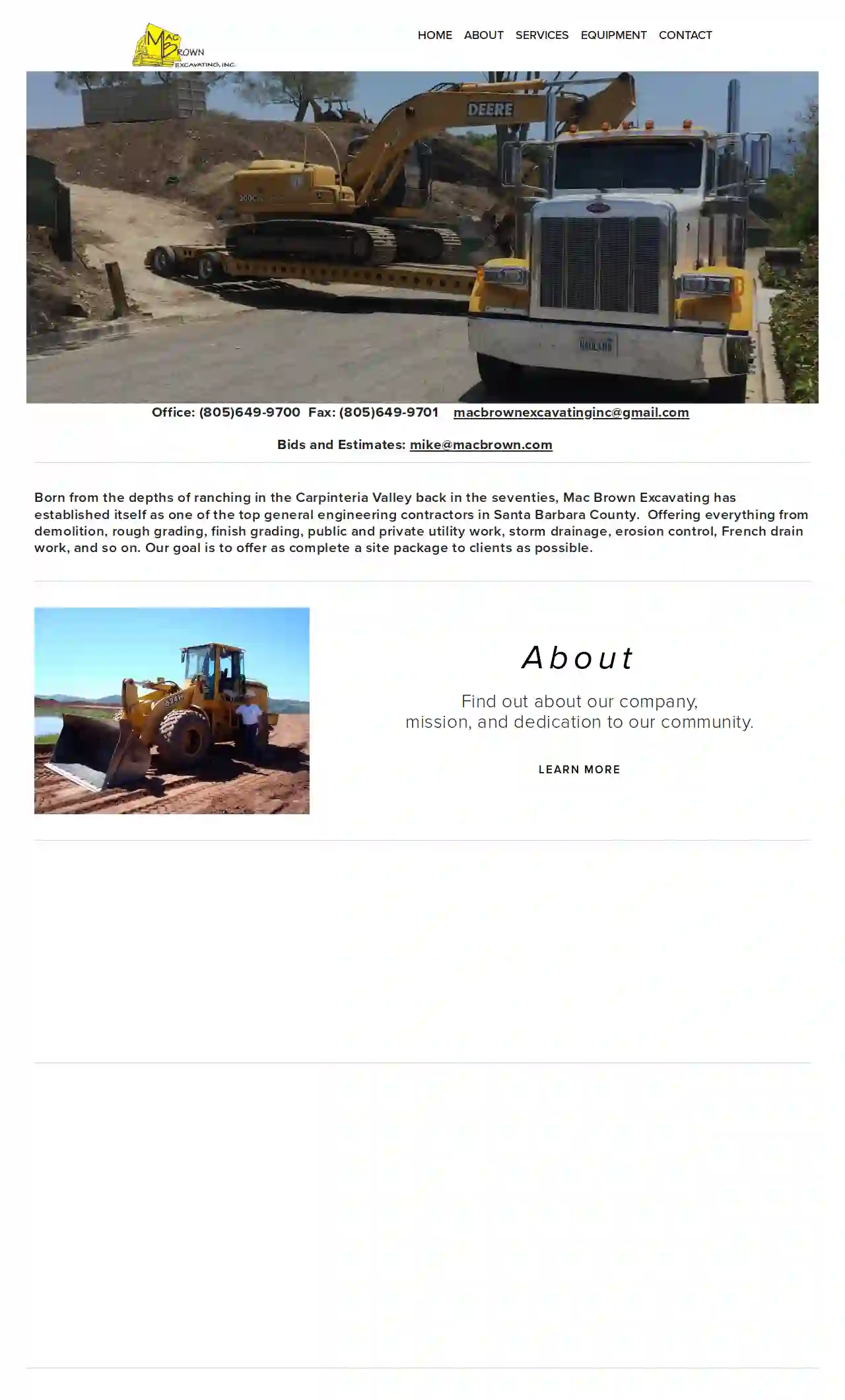Demolition Contractors Danville
Top Demo Contractors in Danville
Get multiple Demolition Contractor quotes for your project today! Compare profiles, reviews, accreditations, portfolio, etc... and choose the best offer.

Summit Building Group
51 reviewsSacramento, USSummit Building Group: Your Vision, Our Expertise At Summit Building Group, we are passionate about transforming your vision into reality. We are a full-service construction company specializing in a wide range of projects, from residential remodeling and additions to commercial building construction and tenant improvements. Our commitment to quality craftsmanship, meticulous attention to detail, and collaborative approach ensures a seamless and rewarding construction experience. We understand that building or renovating your space is a significant investment, and we are dedicated to providing you with the highest level of service and expertise. Our team of experienced professionals, including architects, designers, project managers, and skilled craftsmen, work together to deliver exceptional results that exceed your expectations. Whether you are dreaming of a stunning kitchen remodel, a spacious home addition, or a modern commercial building, Summit Building Group is your trusted partner. We are committed to building lasting relationships with our clients, providing transparent communication, and delivering projects on time and within budget. Contact us today to schedule a free consultation and let us help you bring your vision to life.
- Services
- Why Us?
- Gallery
Get Quote
Schreiber Excavating
53 reviews1767 Kenyon Road, Ontario, 14519, USSchreiber Excavating has a long history of happy clients across New York State. You can expect only the best in construction, utility installation, and trucking services from Dan and his team. Working at an expert level in construction requires highly trained workers and precision equipment. We use only the most advanced technologies to ensure safety, efficiency, and the best price possible. At Schreiber Excavating, our top priority is client satisfaction. You can expect a job well done—every time. Schreiber Excavating has a proven track record of delivering only the finest quality site work and utility services from initial conception to final product. Our highly trained team places safety first while maintaining a diligent focus throughout the entire process. You can trust Schreiber Excavating to make your construction a reality.
- Services
- Why Us?
- Testimonials
- Gallery
Get Quote
Big Bore Drilling
4.828 reviews1522 W Pine, Fresno, 93728-1211, USWelcome To Big Bore Drilling Certified Septic & Hydroflushing Family owned and operated, since 1959, Big Bore Drilling has been providing septic system installation, pumping, repairs and certifications. We also provide hydro-flushing/hydro-jetting as well as boring & drilling services. Call today for a fast and free phone quote. We are located in Fresno California and service Fresno county, Clovis, Madera County, and surrounding mountain areas. Don’t put off a job that we make easy, affordable and delivered with quality. Our Services SEPTIC SYSTEM INSTALLATION & REPAIR SEPTIC TANK PUMPING TEST HOLES DRILLING LEACH LINES SEPTIC REPAIR DRAIN WELLS LIFT STATIONS ENGINEERED SEPTIC SYSTEM INSTALLATION CITY SEWER HOOK-UPS & REPAIR SEPTIC INSPECTIONS HYDROFLUSHING VACUUM DEBRIS REMOVAL HYDRO EXCAVATION
- Services
- Why Us?
- Testimonials
- Gallery
Get Quote
Saunders Landscaping Construction
53 reviewsSacramento, USWelcome to Saunders Landscaping Construction Where creativity and attention to detail are the cornerstones of our success. Our Mission At Saunders Landscaping Construction, our mission is to bring joy, endless possibilities, and luxurious design to every project we undertake. By focusing on your personal design preferences, outdoor space expectations, and plans for relaxation and entertainment, we aim to earn your trust and business for years to come.
- Services
- Why Us?
- Our Team
- Testimonials
- Gallery
Get Quote
Haines & Kibblehouse, Inc.
4.616 reviewsP.O. Box 196, 2052 Lucon Road, Skippack, 19474, USH&K Group, Inc.: Building a Better Future Since 1968 H&K Group, Inc. is a family of companies dedicated to providing exceptional products and services in the heavy civil contracting and construction materials industries. We are committed to delivering strength, experience, and value to our customers in the Mid-Atlantic Region. Our diverse portfolio of companies allows us to operate individually or as a collective team, ensuring we can meet the unique needs of each project. We are constantly innovating and adapting to meet the challenges of the ever-changing construction landscape. At H&K Group, Inc., we believe in building a better future for our customers, our employees, and our communities. We are proud of our legacy and excited about the future.
- Services
- Why Us?
- Gallery
Get Quote
Optimal EarthWork
51 reviews3070 Garden Ave, San Jose, 95111, USTransforming Landscapes with Precision: Earthworks Experts We harness the raw potential of the earth to create extraordinary transformations and deliver awe-inspiring results for every project we undertake. Excavation & Grading Swimming Pool Demolition Demolition
- Services
- Why Us?
- Accreditations
- Our Team
- Testimonials
- Gallery
Get Quote
A-1 Septic Services
4.675 reviewsModesto, USThe Best Value in Septic Tank Services in Merced County, Stanislaus County, and San Joaquin County Since 1990 The Best Value in Grading & Excavating in Merced County, Stanislaus County, and San Joaquin County Since 1990 Best Choice for Portable Restroom Rentals in Merced County, Stanislaus County, & San Joaquin County Expert Septic Tank Services, Grading & Excavating in Modesto, Oakdale, Escalon & Surrounding Areas For the best septic tank installation and repair, septic tank pumping, utility trenching, and grading/excavation services in Merced County, Stanislaus County, and San Joaquin County, choose A-1 Septic and AAA Backhoe Service. For over 30 years, we've been the preferred septic tank company and excavator for thousands of general contractors, builders, commercial businesses, property managers, city agencies, homeowners, and real estate agents. They trust us because we consistently deliver high quality workmanship and personalized customer service at very competitive prices. Whether you need septic tank repair in Modesto, leach line additions in Ceres, or utility trenching in Salida, we have the skills, knowledge, and expertise to get the job done according to the highest industry standards. AAA Backhoe Service holds a Class A General Engineering Contractors License from the California State License Board, and has earned an A+ rating with the Better Business Bureau. We always use the industry's best practices to ensure that all work gets completed on time, in budget, and in accordance with county and city building codes.
- Services
- Why Us?
- Accreditations
- Testimonials
- Gallery
Get Quote
Mac Brown Excavating Inc
56 reviewsP.O. Box 8, Carpinteria, 93014, USMac Brown Excavating, Inc. Born from the depths of ranching in the Carpinteria Valley back in the seventies, Mac Brown Excavating has established itself as one of the top general engineering contractors in Santa Barbara County. Offering everything from demolition, rough grading, finish grading, public and private utility work, storm drainage, erosion control, French drain work, and so on. Our goal is to offer as complete a site package to clients as possible.
- Services
- Why Us?
- Gallery
Get Quote
Souza Construction & Electric
52 reviews586 So. Farmersville Blvd., Farmersville, 93223, USSouza Construction Inc. is a growing construction business, striving ever forward to become a premier general contractor. From our beginning as a “one-man show”, until our present state as a “multi-faceted” team, one thing has remained constant, a commitment to customer service. It is this commitment that has helped Souza Construction Inc. nearly double its sales every year for the last four years. We firmly believe that it will be this continuing commitment that will assist us in continuing this phenomenal growth pattern. Essential to this excellent service are our capabilities as a builder and a business. THE SOUZA COMMITMENT Souza Construction Inc. has committed itself to recruiting and training leaders in both the construction and professional world. Assembling a team of this caliber is not a quick or simple process, but requires diligent research, highly refined discernment, and continuous assessment. However, it is just this level of commitment and attention to detail that sets us apart. Souza Construction Inc. has made this our primary goal: understanding our customers and their needs, utilizing excellence in the field and in administration, and combining this with an unwavering commitment to customer satisfaction; this is Souza Construction Inc.
- Services
- Why Us?
- Testimonials
- Gallery
Get Quote
H.I.G Contractors
54 reviews123 Main Street, Anytown, 12345, USAbout HIG Contractors HIG Contractors is a family-owned and operated business with over 20 years of experience in the construction industry. We are committed to providing our clients with high-quality workmanship and exceptional customer service. We specialize in a wide range of construction services, including: Residential construction Commercial construction Renovations Additions Roofing Siding Windows and doors Decks and patios And more! We are fully licensed and insured, and we are proud to be a member of the Better Business Bureau. We are committed to providing our clients with a positive and stress-free construction experience. We work closely with our clients to ensure that their project is completed on time and within budget. We are also committed to using environmentally friendly building practices whenever possible. If you are looking for a reliable and experienced construction company, look no further than HIG Contractors. We are dedicated to providing our clients with the highest quality construction services available.
- Services
- Why Us?
- Testimonials
Get Quote
Over 22,076+ Excavation Contractors in our network
Our excavation experts operate in Danville & beyond!
ExcavationHQ has curated and vetted the Best Excavation Pros in and around Danville. Find the most reliable contractor today.
Frequently Asked Questions About Demolition Contractors
- General Liability Insurance: Covers bodily injury or property damage to third parties caused by the contractor's negligence.
- Workers' Compensation Insurance: Provides benefits to workers injured on the job.
- Pollution Liability Insurance: Covers costs associated with environmental contamination caused by demolition activities.
- Professional Liability Insurance: Protects against claims of negligence or errors in professional services, such as demolition planning or consulting.
- Clear the Site: Remove all furniture, appliances, personal belongings, and any valuable items from the structure.
- Secure the Perimeter: Fence off the demolition area to prevent unauthorized access and protect surrounding property.
- Disconnect Utilities: Arrange for the disconnection of electricity, gas, water, and other utilities servicing the building.
- Hazardous Material Abatement: If asbestos, lead paint, or other hazardous materials are present, have them professionally removed before demolition begins.
- Notify Neighbors: Inform your neighbors about the demolition schedule to minimize disruptions and address any concerns.
- Obtain Permits: Ensure all necessary demolition permits are in place before starting work.
- 'Can I see proof of your licensing and insurance?' Verify their credentials and coverage.
- 'What experience do you have with projects like mine?' Ensure they have relevant expertise.
- 'Can you provide references from past clients?' Check their reputation and customer satisfaction.
- 'What are your safety protocols?' Prioritize contractors who emphasize safety.
- 'How will you handle hazardous materials?' Ensure they have proper procedures for asbestos or lead abatement.
- 'What is your timeline for completing the project?' Understand the project duration.
- 'How will you manage noise, dust, and debris?' Discuss mitigation measures for minimizing disruption.
- 'What are your payment terms?' Clarify payment schedules and any required deposits.
What is the importance of insurance in demolition projects?
How do I prepare my property for demolition?
What questions should I ask a demolition contractor before hiring them?
How do I find demolition contractors near me?
What is the importance of insurance in demolition projects?
- General Liability Insurance: Covers bodily injury or property damage to third parties caused by the contractor's negligence.
- Workers' Compensation Insurance: Provides benefits to workers injured on the job.
- Pollution Liability Insurance: Covers costs associated with environmental contamination caused by demolition activities.
- Professional Liability Insurance: Protects against claims of negligence or errors in professional services, such as demolition planning or consulting.
How do I prepare my property for demolition?
- Clear the Site: Remove all furniture, appliances, personal belongings, and any valuable items from the structure.
- Secure the Perimeter: Fence off the demolition area to prevent unauthorized access and protect surrounding property.
- Disconnect Utilities: Arrange for the disconnection of electricity, gas, water, and other utilities servicing the building.
- Hazardous Material Abatement: If asbestos, lead paint, or other hazardous materials are present, have them professionally removed before demolition begins.
- Notify Neighbors: Inform your neighbors about the demolition schedule to minimize disruptions and address any concerns.
- Obtain Permits: Ensure all necessary demolition permits are in place before starting work.
What questions should I ask a demolition contractor before hiring them?
- 'Can I see proof of your licensing and insurance?' Verify their credentials and coverage.
- 'What experience do you have with projects like mine?' Ensure they have relevant expertise.
- 'Can you provide references from past clients?' Check their reputation and customer satisfaction.
- 'What are your safety protocols?' Prioritize contractors who emphasize safety.
- 'How will you handle hazardous materials?' Ensure they have proper procedures for asbestos or lead abatement.
- 'What is your timeline for completing the project?' Understand the project duration.
- 'How will you manage noise, dust, and debris?' Discuss mitigation measures for minimizing disruption.
- 'What are your payment terms?' Clarify payment schedules and any required deposits.